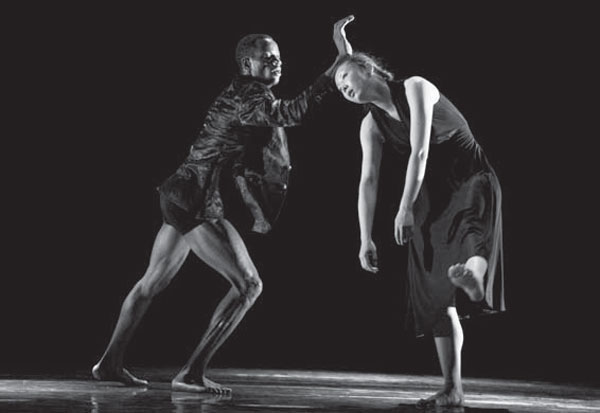 |
|
Jiang Keyu and her husband Romuald Abbe express themselves in the way they know best. Provided to China Daily
|
"We are together because we love each other and we love dance," Jiang says. "I have never thought about cars, houses or any other material things."
In 2012 they founded the Abbe Dance Company in Beijing, which aims to introduce a mixed style of dancing to people. The two bring together dancers from around the world for dance projects, and the pair travel and perform in China, Africa and Europe.
Abbe says one of his main interests is people, and when he is in China he likes to go to places where people are drinking and chatting, and draw creative inspiration.
"To me most of the time creativity is a question. I like to question people, sometimes just letting the body express what I want to say. Every time I ask questions, I have the opportunity of discovering a new direction, a new philosophy about the body and a new kind of body language. It's an opportunity to explore things."
In the first performance in the Fete de la Francophonie en Chine the pair encouraged dancers, who were from various countries and spoke different languages, to do improvisational dance and to "seek themselves". They had a theme in mind, but did not tell the dancers what it was, and guided them using body language.
"I want the dancer to think about the past, the present and the future," Abbe says. "What you have, what you are and what you want. My first tip was for them to free themselves, without making any judgment, just to watch what they had to do."
Abbe says African dance emphasizes connection with the ground. All the power comes down to the ground, and it is on that the dance moves are based. He has found many similarities in learning Chinese arts such as taichi and kung fu, he says.
"When I first came across Chinese culture, I could also see a relationship between our culture and Chinese culture. Chinese art forms such as taichi and kung fu are from the ground. They draw power from the ground and rise, and you keep hold of your relationship with the ground. Many dances in China go down to the ground. The two cultures are very close."
As Abbe tries to build his connections with China, Jiang is deepening hers with Africa. In her work as a dance teacher in a garment company she teaches mainly African dances tailored for Chinese.
"Chinese students are very interested in exotic African dancing, but they cannot deal with its strong power and rhythm, so I have to make changes accordingly."
We Recommend:
